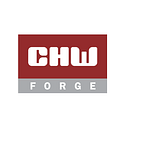What are the Advantages and Disadvantages of Closed Die Forging?
When it comes to shaping a metal part, the used to shape the metal with the help of plastic deformation in a controlled manner refers to forging. While there are several forging methods, one of the most common is — closed die forging. As one can choose from a variety of metalwork techniques, it becomes important to understand when closed die forging should be chosen or avoided in accordance with an industry’s specific requirements.
Understanding closed die forging
This forging technique involves the pressing of hot round bars and their net shaping in closed dies. This metal forming process offers the desired shapes and is being widely used for all industries, including engineering, construction, aerospace, power generation, defence, oil and gas, etc. Closed die forging offers great toughness and strength to products. Let us now have a look at some of its major advantages and disadvantages.
Advantages of closed die forging
● Net shapes: Closed die forging creates net shapes or near net shapes. Thus, one can save time and money that would otherwise be spent on additional machining work.
● High strength: In comparison to casting, closed die forging shows superior mechanical properties, majorly because of the formation of internal grain structure that follows a part’s general shape. The internal grain flow leads to higher product strength and toughness. Thus, the application of this process is wider, as the products offer better working performance.
● Close tolerances: As closed die forging gives near net shape, close tolerances can be achieved through this process. In fact, for some small products, one can achieve a tolerance close to +/- 0.3mm. This further requires less machining or no machining, saving on costs.
● No material limitation: Whether it is steel, brass or aluminium, forging companies in India use all such materials for closed die forging. The process is also suitable for several other metal alloys.
● Better surface finish: As against casting, closed die forging provides much better surface finish due to precise shaping. It again saves the cost of machining.
● Cleaner process: Forging manufacturers in India adopt closed die forging whenever possible, as it is also a cleaner and greener process as compared to casting.
Disadvantages of closed die forging
● Higher tooling costs: The process involves higher tooling cost that makes it expensive, at least for short production runs. However, it can be quite suitable for large production runs or where mass production is required.
● Dimensions limitation: For complex products, closed die forging may not help. It has limitations on dimensions. Products with irregular shapes will require processes like open die forging or casting.
● Size limitation: Similar to complex products, larger products may be produced by other techniques and closed die forging may not be suitable for them.
Thus, closed die forging is overall a cost-effective process when used for mass production and to gain higher product strength and toughness. For short production runs and complex products, industries may need to depend on other metalwork techniques.
